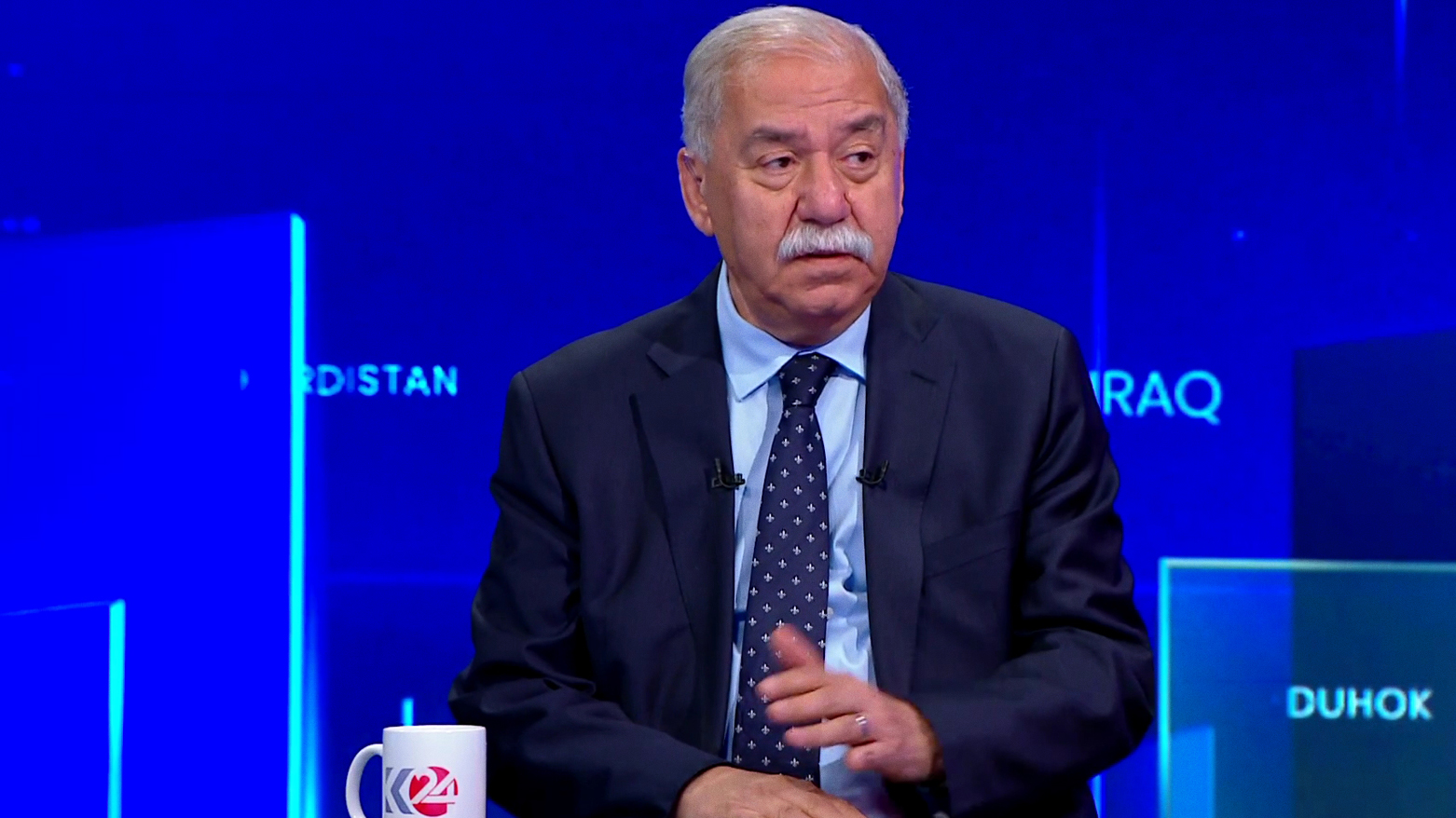Al-Alusi Slams Kurdistan Salary Suspension as ‘Unconstitutional and Dangerous’
Prominent Iraqi politician Mithal al-Alusi slammed the suspension of Kurdistan Region salaries as unconstitutional and dangerous, blaming Baghdad’s centralism, sectarianism, and foreign interference; he urged PM al-Sudani to reverse the move, warned it risks civil unrest and national disintegration.

By Kamaran Aziz
ERBIL (Kurdistan24) – Prominent Iraqi independent politician Mithal al-Alusi has launched a fierce critique of the Federal Ministry of Finance’s recent decision to suspend salary payments to public servants in the Kurdistan Region, denouncing the move as “unconstitutional, illegal, dangerous and inconsistent with the government agreement.”
Speaking to Kurdistan24 in an interview, al-Alusi condemned the decision, calling it an impulsive act that that violates the principles on which the current Iraqi cabinet was formed.
“There are impulsive and dangerous decisions — unconstitutional, illegal and incompatible with the government’s foundational agreement,” he stated. “This cabinet was formed on the basis of a government program, and it is baffling that such a decision would come from a minister within it.”
Arbitrary Estimation and Structural Failures
Al-Alusi took issue with the Ministry’s reliance on internal estimations to justify the suspension, criticizing what he saw as arbitrary and unaccountable decision-making.
“The statement says ‘based on our estimations’ — meaning that perhaps an official, a director general, or even a department head in the ministry is arbitrarily determining what Kurdistan gets and what Baghdad gets,” he said. “You cannot tie the livelihood of millions of people to the personal judgement of one individual. What if those estimations are wrong?”
A Deep Crisis Tracing Back to 2014
Al-Alusi underscored that the salary crisis is not a new phenomenon. “This issue began in 2014,” he said, pointing out that it has persisted through successive Iraqi administrations due to entrenched political dysfunction.
He blamed ideological and sectarian factions for prolonging the crisis, accusing them of shifting alliances and undermining national unity. “To cut salaries during these sacred and blessed days in the Islamic calendar — this is, in my view, a major crime and grave error,” he warned, urging Prime Minister Mohammed Shia al-Sudani and the Council of Ministers to reverse the decision without delay.
A Dangerous Double Standard
Drawing a controversial parallel, al-Alusi remarked, “Most of the world considers starving the people of Gaza a heinous crime. The Iraqi authorities themselves accuse Israel of this. Yet, here they are implementing the same policy on their own citizens, salaries are a constitutional right, and the Kurds are partners in governance.”
He called the suspension “an unprecedented ethical breach.”
Political Exploitation and Foreign Meddling
Al-Alusi alleged that the decision was politically motivated and influenced by external actors.
“This is a politicized matter, clearly influenced by eastern neighbors,” he said, referencing regional interference without naming specific countries.
“As we approach parliamentary elections, these actors are trying to corner the Iraqi Prime Minister, turning salaries into a political card to appeal to fascist emotions and ideologies. This cannot be allowed,” he added.
U.S. Oversight and Budget Scrutiny
Highlighting the international dimension, al-Alusi underlined that Iraq’s federal budget, including oil revenues, is under U.S. custody. “If the U.S. President doesn’t authorize the disbursement, not a single dinar from oil revenues will reach Iraq,” he said.
He further noted that the U.S. Federal Reserve holds Iraq’s payroll records. “I demand that the Kurdistan Region’s share be sent directly to the Region to prevent manipulation in Baghdad and to safeguard Iraq from slipping into civil war,” he added.
Condemning Centralism and Sectarianism
Al-Alusi issued a scathing critique of Baghdad’s centralized model of governance, stating, “The centralist system has brought us nothing over the years, what we now have in Baghdad is a sectarian, ideological, and authoritarian regime.”
Directly addressing Finance Minister Taif Sami and Prime Minister al-Sudani, he challenged them by saying, “You have a dispute with the Sadrist Movement, would you dare to suspend the salaries of Sadrist-affiliated employers?”
He concluded with a message of solidarity with the Kurdish people and said, “I know President Barzani and I know Kurdish people well, they are far greater than to be defeated by these political mazes.”
Al-Alusi closed by warning that some factions in Iraq seek to replace constitutional federalism with a theocratic model akin to Iran’s Wilayat al-Faqih (The Guardianship of the Islamic Jurist), a vision he says is incompatible with Iraq’s diverse and pluralistic society.